As a holistic veterinarian, I’ve had the pleasure of working with many breeds of dogs. But one that always stands out is the Biewer Terrier. This breed is known for its playful demeanor, silky coat, and expressive eyes. However, those beautiful eyes can sometimes be prone to certain health issues. That’s why I’m here to talk about Biewer Terrier Eye Health.
Being a Biewer Terrier parent, you might have noticed your furry friend squinting, tearing up, or rubbing their eyes more often than usual. Don’t panic! It’s essential to understand that these symptoms could indicate a common eye condition. But with the right care and preventative measures, your Biewer Terrier can enjoy a life of clear, healthy vision.
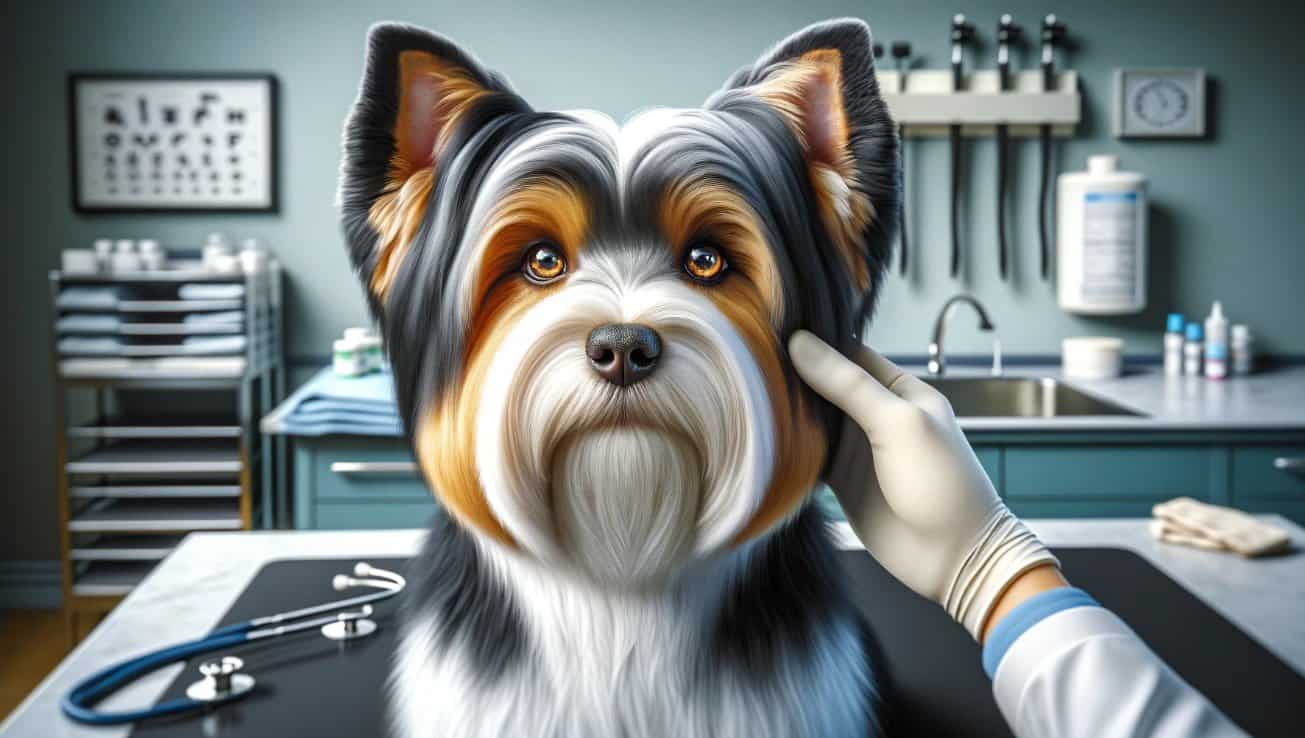
Throughout this article, we’ll discuss the unique eye structure of Biewer Terriers, the common eye issues they face, and the steps you can take to prevent these problems. We’ll also delve into the importance of a holistic diet, environmental hygiene, and routine eye care for your Biewer Terrier’s overall eye health. So, whether you’re a new Biewer Terrier parent or have been one for years, this guide will provide you with the knowledge needed to ensure your dog’s eyes stay as bright and healthy as possible.
Remember, the key to a healthy pet is proactive care. So let’s dive into the world of Biewer Terrier Eye Health and discover how to keep those adorable eyes sparkling!
Understanding Biewer Terrier Specific Eye Structure
Unlocking the secret to your Biewer Terrier’s eye health starts with understanding their unique eye structure. This knowledge not only helps you appreciate the beauty of their expressive eyes but also equips you to spot potential problems early on.
One of the distinguishing features of the Biewer Terrier’s eye is the prominence of the eyeball. This prominence, while contributing to their unique look, can make the eyes more susceptible to injury and irritation. It also exposes a greater surface area of the cornea (the clear, outer layer of the eye) to environmental factors, which can lead to dryness and other complications.
Additionally, the eyelids of the Biewer Terrier are designed to protect their prominent eyes. But, the breed’s long eyelashes, while beautiful, can sometimes cause problems. If they curl inwards, they can irritate the cornea, a condition known as entropion.
Moreover, the Biewer Terrier’s lacrimal system, responsible for producing tears to keep the eyes moist, can sometimes be inadequate. This can lead to dry eye syndrome, a condition that can cause discomfort and, if left untreated, can lead to serious complications.
Understanding these breed-specific eye structures is the first step towards ensuring your Biewer Terrier’s eye health. It allows you to be more vigilant and proactive in spotting and addressing potential problems. Remember, early detection and treatment are key to preventing complications and ensuring your furry friend’s eyes remain as bright and healthy as possible.
Common Eye Issues and Treatments In Biewer Terriers
As a veterinarian, I’ve seen a variety of eye problems that can affect Biewer Terriers. It’s crucial that you, as a pet parent, are aware of these conditions to ensure the optimal eye health. Here are some common issues and some of the treatments for these Biewer Terrier eye conditions:
- Cataracts: This is a common eye problem where the lens of the eye becomes clouded, causing blurred vision or even blindness. The risk of cataracts increases with age, but they can also be caused by diabetes or injury. Depending on the severity, cataracts may require surgery to restore vision. Your vet may also recommend eye drops to control inflammation.
- Progressive Retinal Atrophy (PRA): PRA is a group of genetic diseases that cause the retina to degenerate slowly over time, leading to blindness. It’s important to have your Biewer Terrier tested for PRA, especially if you notice any changes in their vision. While there’s no cure for PRA, antioxidant supplements can slow down the degeneration.
- Corneal Dystrophy: This condition affects the cornea, the outermost layer of the eye. It can cause opacity, ulcers, or even blindness if not treated promptly. Treatment often involves managing symptoms, such as using eye drops to reduce inflammation and discomfort. In severe cases, surgery may be necessary.
- Conjunctivitis: Also known as “pink eye,” this inflammation of the eye’s outermost layer can be caused by allergies, irritants, or infections. Watch out for redness, swelling, and discharge. Treatment typically involves eye drops or ointments to combat infection and inflammation. If allergies are the cause, your vet may suggest allergy medications or changes in diet.
Remember, early detection of these Biewer Terrier eye problems can make a huge difference in outcome. Regular vet check-ups and paying attention to any changes in your dog’s behavior or appearance are key to maintaining good Biewer Terrier eye health.
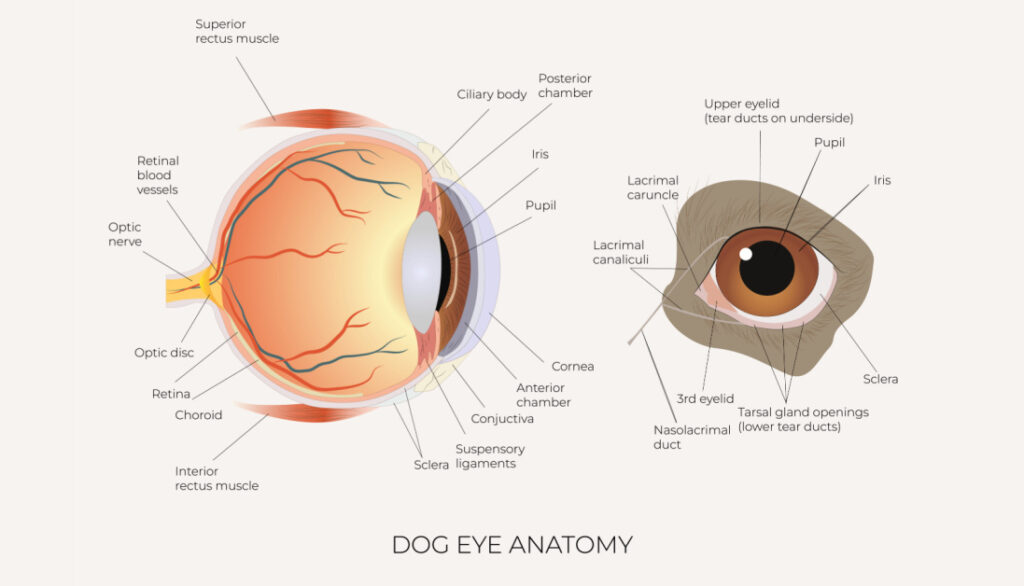
Prevention of Eye Problems
Ensuring your Biewer Terrier gets the right nutrients for optimal eye health is essential for maintaining clear vision and preventing age-related issues. Natural, nutrient-rich foods and supplements can play a key role in supporting their eyesight. From vitamin A-packed freeze-dried liver treats to antioxidant-rich blueberries and targeted supplements like Eyeplex by Standard Process, there are several ways to nourish your dog’s eyes. In this section, we’ll explore how these powerful ingredients contribute to long-term vision health and overall well-being.
Eyeplex by Standard Process
Eyeplex by Standard Process is a specialized supplement designed to support your Biewer Terrier’s eye health with a blend of essential nutrients. Formulated with key vitamins, minerals, and antioxidants, Eyeplex helps protect against oxidative stress, supports retinal function, and promotes overall vision health. Ingredients like vitamin A, vitamin C, and zinc contribute to maintaining strong eyesight, while whole food ingredients provide additional phytonutrients for cellular protection. Adding Eyeplex to your Biewer Terrier’s diet can be especially beneficial for aging dogs or breeds prone to eye conditions, offering targeted nutritional support to keep their vision sharp and healthy for years to come.
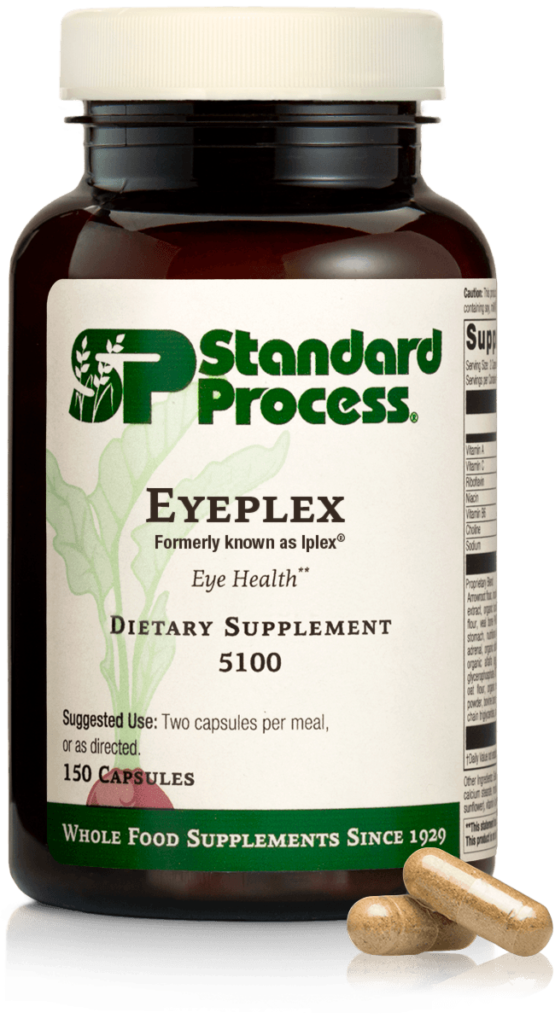
Freeze-Dried Blueberries
Freeze-dried blueberries are a powerhouse of antioxidants that can help protect your Biewer Terrier’s eyes from oxidative stress and age-related damage. Rich in vitamins C and E, as well as anthocyanins, these tiny but mighty berries help combat free radicals that can contribute to eye diseases like cataracts and macular degeneration. Incorporating freeze-dried blueberries into your dog’s diet provides a natural and delicious way to support retinal health, reduce inflammation, and promote overall vision longevity. Plus, they’re a low-calorie, dog-friendly treat that makes a great addition to a balanced diet for long-term eye health.
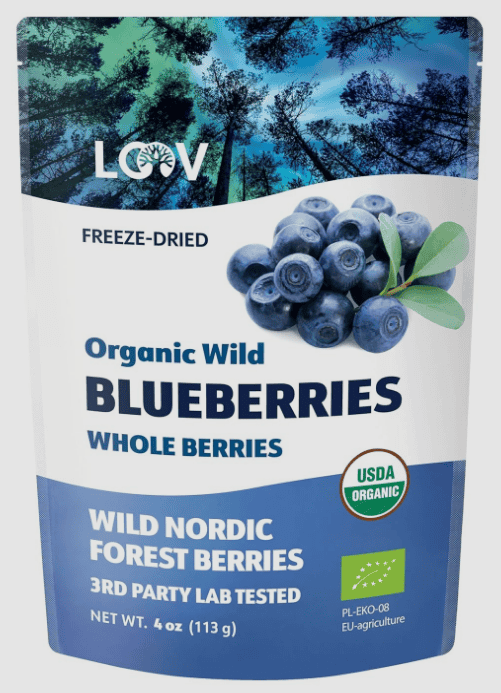
Freeze-Dried Liver
Freeze-dried liver treats are an excellent natural source of vitamin A, an essential nutrient for your Biewer Terrier’s eye health. Vitamin A plays a crucial role in maintaining good vision, especially in low-light conditions, while also supporting overall immune function and skin health. Since liver is rich in bioavailable vitamin A, incorporating freeze-dried liver treats into your dog’s diet provides a convenient and nutritious way to promote optimal eye function. Just be sure to feed them in moderation, as excessive vitamin A can lead to toxicity. Adding these nutrient-packed treats to your pup’s routine is a simple, tasty way to support their long-term vision and well-being!
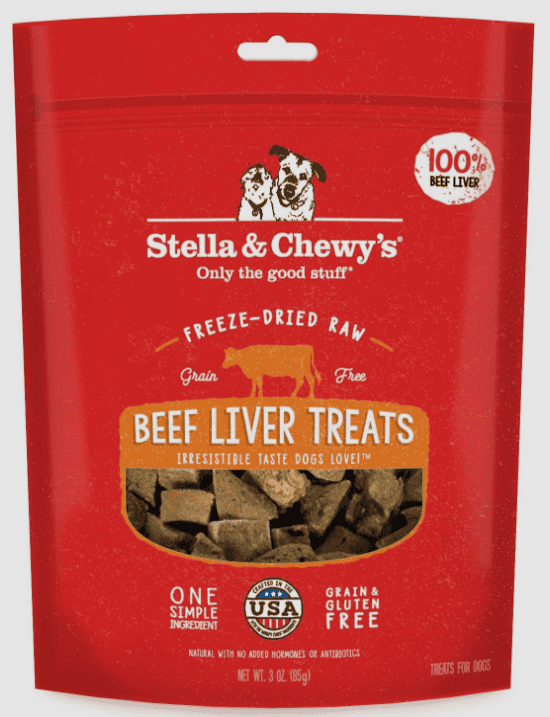
By prioritizing your Biewer Terrier’s eye health through a balanced diet and nutritional supplements, you can help prevent many common eye issues. These simple steps can go a long way in ensuring your pup’s eyes stay healthy and clear for years to come.
Remember, while supplements can be beneficial, they should not replace a balanced diet. Always consult your vet before starting any new supplement regimen for your Biewer Terrier to ensure it’s safe and suitable for your dog’s specific needs.
Environmental Hygiene To Reduce Eye Problems
Just as with humans, the environment in which a Biewer Terrier lives can significantly impact their eye health. There are several factors within the environment that can contribute to eye problems in your pet, but with careful management and attention to detail, you can create a safe and healthy living space for your furry friend.
Indoor Air Quality
One of the first aspects to consider is the indoor air quality. Ensuring your home has clean, fresh air is crucial for the overall health of your Biewer Terrier, including their eye health. Dust, dander, and other airborne particles can irritate your dog’s eyes, leading to discomfort and potential eye problems. To improve indoor air quality, consider using an air purifier, regularly replacing HVAC filters, and keeping your home clean and dust-free. Regularly ventilating your home by opening windows can also help circulate fresh air.
Sprays, Diffusers, Candles, Incense
Many pet owners enjoy using sprays, diffusers, candles, or incense to keep their homes smelling fresh. However, these products can contain chemicals that can irritate your Biewer Terrier’s eyes. If you notice your dog squinting, rubbing their eyes, or showing signs of discomfort after you’ve used these products, it may be best to avoid them. Instead, opt for pet-friendly alternatives or use these products in areas where your dog doesn’t spend much time.
Additionally, smoke from candles and incense can also irritate your dog’s eyes. If you enjoy using these products, make sure the room is well ventilated and your pet has the option to leave the room if they want to.
Maintaining a clean and healthy environment is a key part of ensuring your Biewer Terrier’s eye health. By paying attention to indoor air quality and being mindful of the products you use in your home, you can help prevent eye problems and ensure your dog’s eyes remain healthy and clear.

Routine Biewer Terrier Eye Care & Maintenance
When it comes to maintaining your Biewer Terrier’s eye health, routine care and maintenance is key. This involves daily and weekly practices that keep your furry friend’s eyes clean and free from irritants. The right care and maintenance practices not only prevent eye problems but also ensure early detection and treatment of any issues that may arise.
Daily & Weekly Care & Maintenance
On a daily basis, you should check your Biewer Terrier’s eyes for any signs of discomfort or abnormalities. This includes redness, excessive tearing, discharge, cloudiness, or any visible discomfort. Use a soft, clean cloth to gently wipe away any discharge around the eyes. Always wipe from the inner corner of the eye outward to avoid introducing more dirt or bacteria into the eye.
On a weekly basis, consider bathing your Biewer Terrier to keep their fur clean and free from irritants that could affect their eyes. During bath time, make sure to avoid getting soap or water into your dog’s eyes as this can cause irritation. You can use a special dog eye protector or simply be very careful when washing their face.
Monitoring Hair Length, Nail Length, and Bath Frequency
Biewer Terriers are known for their long, silky hair, which can sometimes fall into their eyes and cause irritation. Regular grooming is essential to keep hair out of their eyes. You might also consider a dog-friendly hairstyle that keeps the hair away from their eyes without compromising their adorable look.
Monitoring your dog’s nail length is also important. Long nails can lead to scratching, which can cause injuries to the eyes. Regular nail trims can help prevent this.
Bathing frequency is another factor to consider. While weekly baths can help keep your Biewer Terrier’s eyes clean, excessive bathing can strip the natural oils from your dog’s skin and fur, leading to dryness and potential irritation. Find a balance that works for your dog, taking into account their activity level and the time of year.
Maintaining your Biewer Terrier’s eye health involves a combination of daily practices, regular grooming, and monitoring your dog’s overall wellness. With the right care and attention, you can help ensure your furry friend’s eyes stay healthy and bright.
Remember, if you notice any changes in your Biewer Terrier’s eyes or if they appear to be in discomfort, it’s always best to consult with a vet. Early detection and treatment can make a significant difference in your dog’s eye health and overall wellbeing.
Frequently Asked Questions
1. What are common eye health conditions in Biewer Terriers?
Common eye health conditions in Biewer Terriers include cataracts, progressive retinal atrophy (PRA), glaucoma, and dry eye.
2. What are the symptoms of cataracts in Biewer Terriers?
Symptoms of cataracts in Biewer Terriers may include cloudy or opaque lenses, difficulty seeing in low light, increased clumsiness, and frequent eye rubbing.
3. How is progressive retinal atrophy (PRA) diagnosed in Biewer Terriers?
PRA can be diagnosed through a comprehensive eye examination performed by a veterinarian, which may include visual testing, electroretinography (ERG), and genetic testing.
4. What are the treatment options for glaucoma in Biewer Terriers?
Treatment options for glaucoma in Biewer Terriers may include medications to reduce intraocular pressure, laser therapy, or surgical procedures such as gonioimplantation or cyclophotocoagulation.
5. How can dry eye be managed in Biewer Terriers?
Dry eye in Biewer Terriers can be managed through the use of artificial tears or lubricating ointments, medications to stimulate tear production, and regular eye examinations to monitor the condition.
